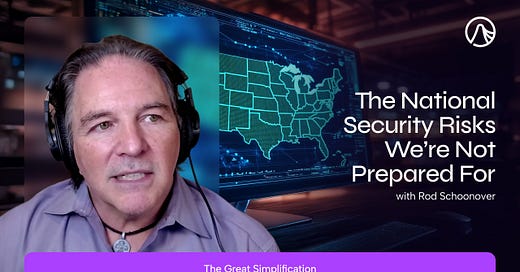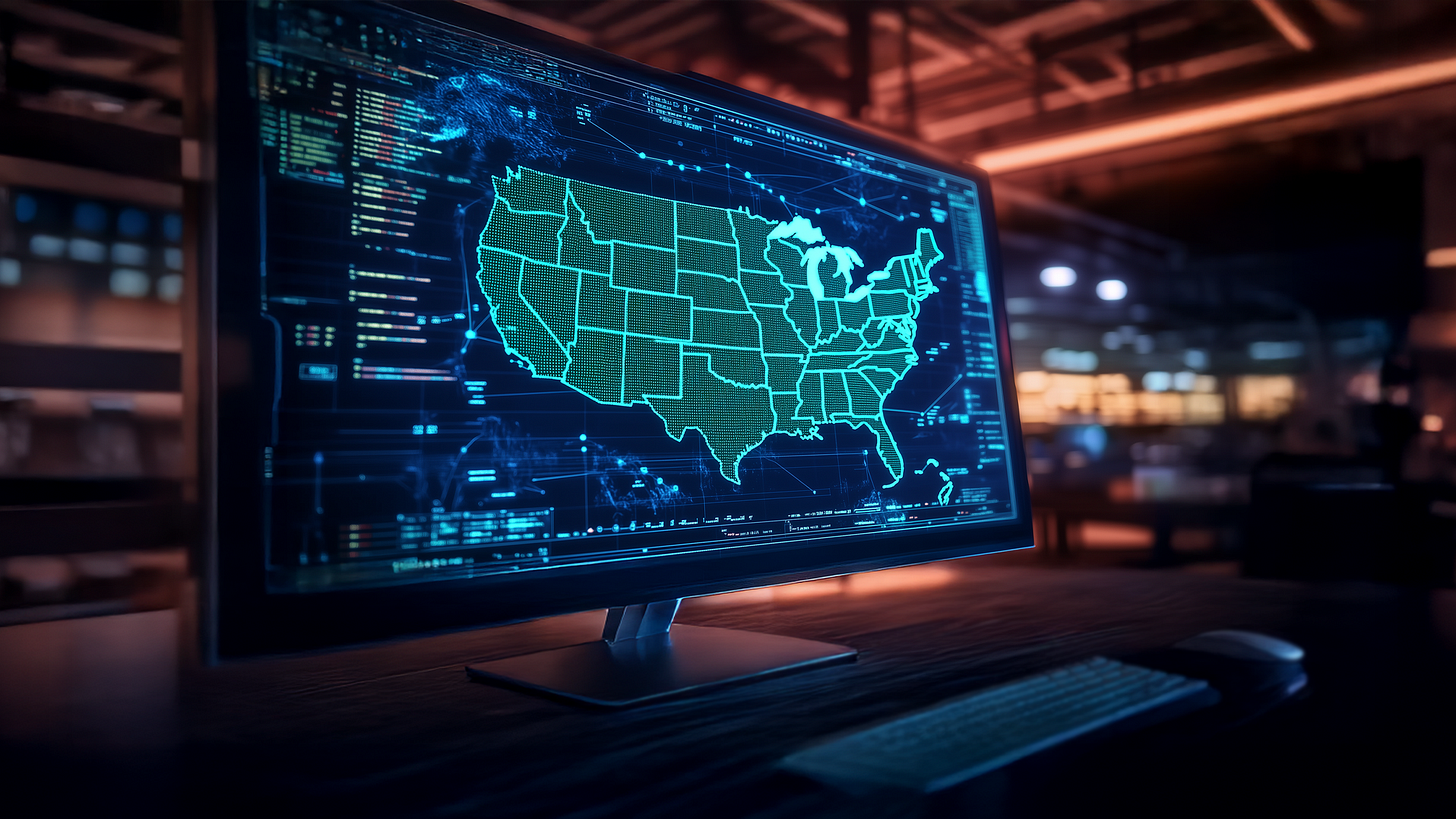The National Security Risks We’re Not Prepared For: Adapting In an Age of Actorless Threats
The Great Simplification #183 with Rod Schoonover
National security concerns have been the invisible hand guiding governance throughout recorded history. In the 20th century, it was defined by a country versus country dynamic: whichever nation was the strongest and most strategic was also the safest. But today, our biggest national security threats don’t come from opposing nations – they are “actorless threats” that emerge from the breakdown of the complex systems we all depend on – from the stability of our planetary systems to our intricately complex and fragile global supply chains. In this unprecedented landscape, what is required of us in order to keep our citizens safe?
In this episode, I’m joined by Rod Schoonover, an expert at the intersection of Earth systems stress and national security, where we discuss the need for the evolution of national defense to address the systemic (and diffuse) threats of the 21st century. Rod emphasizes the need for a reformed security sector that addresses contemporary challenges, like global heating that leads to extreme climatic events, urging immediate action to mitigate risks and enhance stability. Importantly, we also delve into the need for political leadership to embrace complexity and local resilience when tackling these pressing issues.
How do we unite against ‘actorless’ threats, even when we don’t have someone to blame for their damages? Where have leadership and governance already begun to adapt to address these existential concerns, and where are we seeing failures? Finally, how could incorporating more cooperative principles at every level of society transform our ability to bend – not break – under the weight of our human predicament?
In case you missed it…
Last week, I was joined by Helena Norberg-Hodge – a leading voice in the localization movement – to explore the deep systemic challenges posed by economic globalization. Together, we examined how the global growth model has fueled environmental degradation, social fragmentation, and cultural erosion, and why shifting toward localized economies might be one of the most effective (and overlooked) responses to our predicament. Drawing on decades of firsthand experience, Helena invites us to question the assumptions underpinning our globalized lives and imagine a future rooted in local reconnection.
If you appreciate The Great Simplification podcast…
Be sure to leave a review on your preferred podcast platform! Leaving reviews helps the podcast grow, which helps spread awareness of our systemic situation from experts in ecology, energy, policy, economics, technology, and community building so that we can better understand - and respond to - the challenges of the coming decade.
The Great Simplification podcast is produced by The Institute for the Study of Energy and Our Future (ISEOF), a 501(c)(3) organization. We want to keep all content completely free to view globally and without ads. If you’d like to support ISEOF and its content via donation, please use the link below.






Great discussion. Thanks Nate for pointing out the risk goes beyond humankind at around 5:30
These threats are not actorless
Surely we only have ourselves to blame?